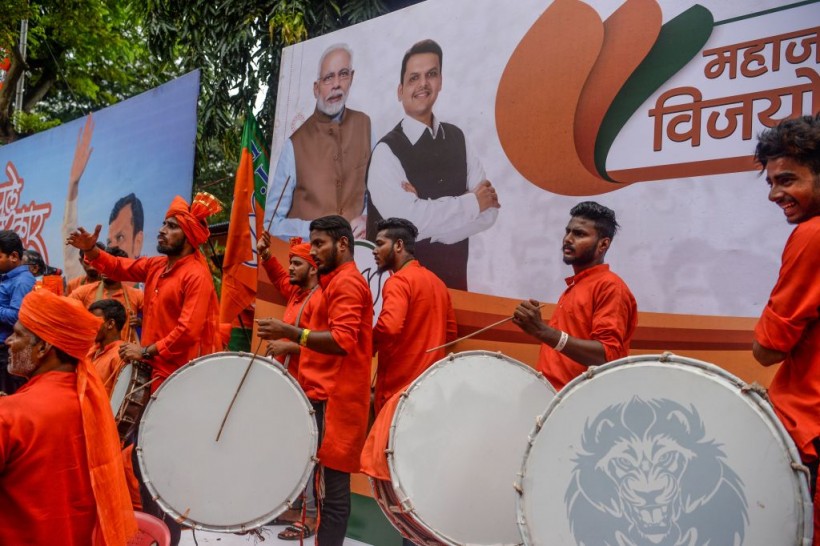
(Photo: PUNIT PARANJPE/AFP via Getty Images)
India is set to become the largest democracy in the world to hold its general elections this year, which will commence on Friday (Apr. 19).
The six-week process would involve close to a billion voters picking the next government and deciding whether to hand Prime Minister Narendra Modi a third term in office.
CNBC reported that voters would decide who would fill the seats of the Lok Sabha, the lower house of India's parliament, for the next five years.
Whichever party or coalition wins, the majority would lead the government and pick the next prime minister. Analysts widely expect Modi's Hindu-nationalist Bharatiya Janata Party (BJP) to score another landslide victory in the upcoming elections.
However, due to India's large geographical and demographic size, it is expected that the country's elections will matter on a global scale.
There would be 543 contested seats in the Lok Sabha, and the party or coalition that wins at least 272 votes would form the government.
Currently, the BJP-led coalition, known as the National Democratic Alliance (NDA), is scheduled to face off against the opposition bloc known as the Indian National Developmental Inclusive Alliance (INDIA), led by the Indian National Congress, with its leading figure being Rahul Gandhi, the scion of Jawaharlal Nehru, India's first prime minister.
The Congress, which ruled the country for most of its post-independence era, suffered a stinging defeat in the 2014 and 2019 elections. Since 2019, the party has held only 52 seats.
According to analysts, the BJP-led coalition is expected to get another term due to the political stability in the last decade.
"Policy consistency and political stability are connected to each other deeply. So the expectation will be that the government that comes in will be able to maintain that," National University of Singapore senior research fellow Amitendu Palit told CNBC.
"This will be a significant year for India, and I have a feeling that whoever be the government in India, the foreign policy direction and the economic policy direction are going to remain broadly unchanged."
Also at stake is India's economic dominance as the world's fifth-largest economy, with a GDP of $3.7 trillion. The country has set its sights on becoming the world's third-largest by 2027.
The International Monetary Fund further projected that India's economy will grow 6.8% in 2024 and 6.5% in 2025, compared to China's predicted growth of 4.6% in 2024 and 4.1% in 2025.
In addition, India's stock market overtook Hong Kong's in December to become the fourth largest globally and is now valued at over $4 trillion.
Analysts expected Modi to win a third consecutive five-year term, further driving India's growth trajectory.
"The growth story is not done," Carnegie India deputy director and fellow Suyash Rai told CNBC.
"But private and foreign investments have been very subdued, and exports have also declined. So I feel that some weakness is building up."









